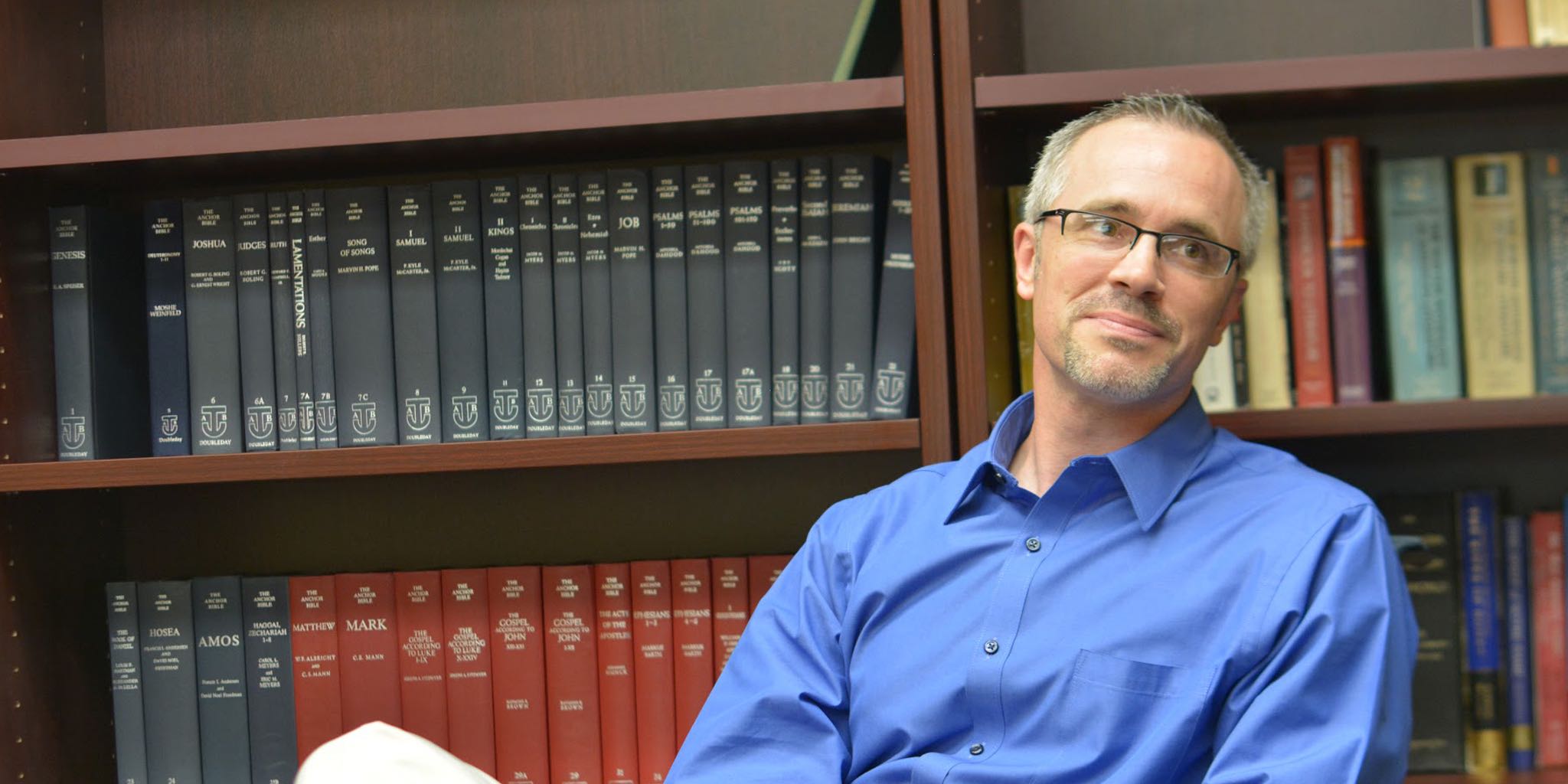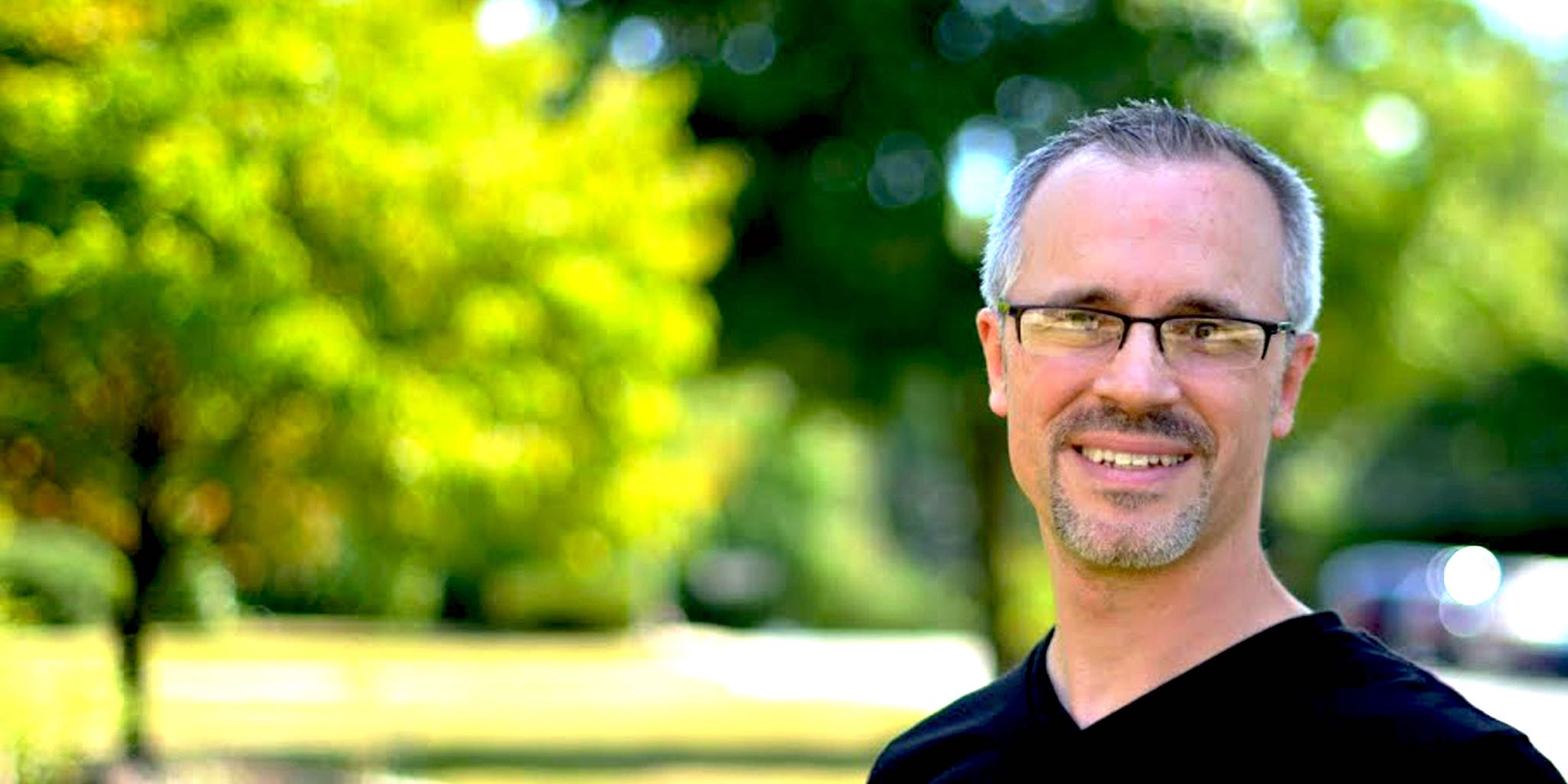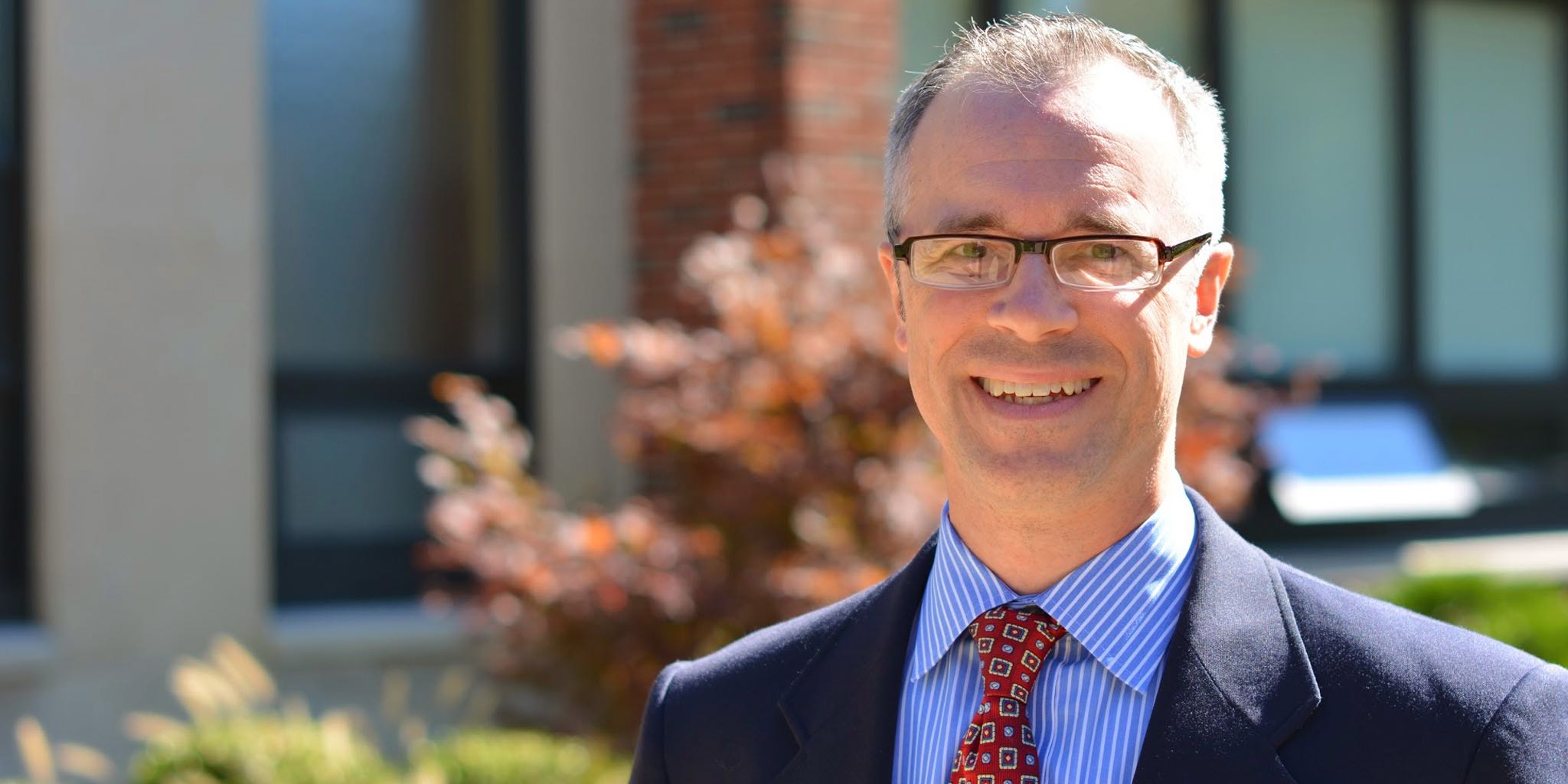Interview with Mike St. Pierre
Michael Sliwinski: You say your two passions are productivity and education. You are the President of Morris Catholic High School in Denville, you write a blog, you have a podcast (Techspiration) (I was there — thank you). Apart from that you are doing so many things trying to advertise productivity, you write for Productive! Magazine as well. Please, explain how in productivity and education, these specialties meet and work together.
Mike: Well, I do have a lot on my plate. I’m also a proud father of four kids and sometimes people ask me, how do I get it all done? Some days I’m not sure… :) But I think typically people who are very productive, they have a lot of balls that they’re trying to juggle and I guess I’m in that category. I’ve been working with students, in particular the middle and high school students, for almost 20 years. I found that there’s just no substitute for a student who is productive. They particularly grow in virtue, they typically get their assignments in on time, they end up getting their applications for college early, they end up getting into more colleges and typically those colleges they really want to go to, more often than students who aren’t as productive. For me, being productive is just part of being human and so why not try to pass on more skills to students. It makes sense for me.
Michael: You are the president of the school. Are you also the principal? How does that work?
Mike: No, I’m not the principal of the school. We have a principal and I’m the president. So the principal reports to me. About 50% of the private high schools in the United States have this president–principal model. It frees up the principal to be the chief operating officer, if you will, and it gives me the opportunity to look at some other things. Not more important things but just different things like strategy, long-range planning and even the productivity of our school. It’s a great dynamic, we work as a team.
Michael: What did you do to incorporate productivity at your school within the last year? How did you focus on making sure that your school is functioning in a more efficient way and students are working better?
Mike: I think the first premise is that the more productive we are as adults in the building, the better our kids are going to be able to learn. The more productive we are, the more we’ll be able to execute our strategic plan and so forth. One thing that was just very practical last year was that we started to see that e-mail was a real problem. Our faculty, our staff, our administration, they’re just getting too many e-mails every day and it’s not that e-mail is bad in and of itself, it’s that a lot of people just misuse it or maybe they have poor e-mail habits so to speak. They just have a lot going on in their lives. So we’ve decided to use a couple of different things. We use Nozbe and some other software applications to do more project-based communication rather than just sending an e-mail and then waiting for the reply. This way the process gets slowed down. We’re trying to more and more with our adults, have our communication be in staff meetings or faculty meetings and then in this project-based communication. That way, if I need to send Joe down the hall a question or have an inquiry about a project, I can send it, I can post it online and then, when Joe has the time to answer that, he can do so without it sort of messing up his workflow.
Michael: This is the giant problem. And indeed I don’t mean the e-mails but as you said people misusing it. They’re trying to manage their projects and their tasks within e-mail. They’re turning e-mail box into task manager.
Mike: Yes, it’s a problem. Typically you know somebody will ask a question. They say “what do you think of this” in an e-mail and I might get a hundred e-mails that day. My answer is, one: probably going to be delayed for that other persons taste, and second: if they just picked up the phone or sent me a text, it would just be a much more efficient way to work. We’re getting better in that way I think. We are also using a lot of Google docs, Google hangouts and were seeing Skype more and more. We’re using screen cast. We’re trying to help our parents communicate with the school when they can’t be present for a meeting and there are tons of different ways that they can do that. Even our graduation, we streamed that online because not everybody can get to graduation. We have some international students who just couldn’t travel across the world, so why not use the Internet as a way to be more productive?

Michael: As I recall you had some pilots of using the iPads in your organization. How did that work?
Mike: It’s been fantastic. In 2012, we were named an Optimum Life Path Innovation School because of our iPad program. So, for us it’s just another aspect of the students’ toolbox. That’s where they get their textbooks. It’s where they take notes. Hopefully, one day it’s where they get to use Nozbe. It’s just another extension of the learning process. So every student has an iPad. We’re in our third year in the program. Before we implemented this one to one program, we visited some of the best schools in the country to see how they’re helping students be more productive, in particular with iPads. And it’s not that we’re adverse to other kinds of tablets but we just felt like the iPad made a lot of sense for kids. Kids love it. Parents like it. Most teachers really find a lot of value to them and so we understand that the iPad does about 90% of what a student needs and we’ll compliment their use of iPads with chromebooks, chromebases or MacBooks if they really need to type a long paper. But really for 90% of what a student needs and does, the iPad really works great.
Michael: Exactly. I’ve been preaching the #iPadOnly work for a long time because of that. Steve Jobs, when he was still there, had this event about iPads during which he presented their iBooks offer and the whole schoolbooks initiative. Do you think that iPad could be really one of the most important tools for the students in the future?
Mike: I do. I think it’s because, to whatever degree we can simplify students learning process the better. So here’s a practical example: our school is going to a whole new schedule this year that’s simpler. There are fewer classes per day, the same number of minutes in a given eight day cycle, so it’s not as if anyone’s learning less, but it’s a smarter way to help kids learn. Similarly, the iPad is a way to simplify how students take their notes, gather information, check their homework, do their homework and communicate with one another. And the more the students are online on the internet, the harder it is for them to focus and concentrate. So, for us, we’re trying to stay very, very much up to speed on what the current research is in terms of iPads and attention span and things like that. If they help the students learning become simpler, just as profound, just as deep, accomplishing incredible things, getting them ready for college, we think that simplification is really a value to them. So for us the iPads are kind of connected to that sense of simplicity which we think more and more kids need. There’s a whole list of other reasons too like saving your back so you don’t get scoliosis from carrying 35 pounds of books on it or just having one place for all of your work. So for us it really is about simplification.
Michael: That’s right. I still remember back in high school, when I had to carry so much stuff. If you compare that to an iPad it’s like a bag of rocks. So another question: apart from writing and being the president of the school and improving productivity with your students, you are also very much on the internet. Your blogging, your podcasting, how does that work for you and your objectives and where do you want to take it to the next level?
Mike: I think that I blog and I podcast for two reasons. One, because I have a voice and people have told me that they find that I’m able to put things in ways that they understand and I guess that’s sort of the educator in me :) You know when you’re taking a complicated concept and trying to help 14-15-16-year-olds understand it, you have to get to the point. You have to speak clearly and it has to be relevant to them. I think as a blogger that’s really what great bloggers do. They get to the point, they understand people are busy. They have to be relevant to where people are at. I think for me the other aspect of being online is that it helps me connect with people who I really inspire and to have mentored me and inspired me. The other day I spoke to Fraser Speirs from Scotland on a podcast and it was just amazing because I really looked up to him for a number of years. Many of the people you’ve had on Productive Magazine. You know, sharing my voice and also just try to learn from people who are more productive than I am.
Michael: Yes, this is also one of the reasons I run Productive! Magazine — to be able to talk to people like you and other people who are just amazing. This way I can really connect with them. Coming from blogging and podcasting, let’s talk a little bit about social media. You’ve just written a post about how it’s not obligatory to use Facebook and you’ve even quoted some research that proves that actually people who are active in social media, are less happy compared to people who don’t use it? Please, tell me what you think about social media and the way the evolve. I am also curious how you use it yourself and how it impacts your productivity.

Mike: That’s a great question because social media are something that I really continue to evolve and mature at. I am by no means an expert. I think of sort of two pieces of advice. One, I think of Pat Flynn’s advice, “Be everywhere”. I first heard that and I said, “My gosh, that stresses me out just thinking about it”. But I think his point is that if you want to drive traffic to your website, you want to have multiple embassies coming back to your website, so that sort of makes sense
But then I think of something that Michael Hyatt talks a lot about. He says you have to be intentional. I wrote this post called, “Is it time to kiss Facebook goodbye?” not because I dislike Facebook, it’s fine. But if using Facebook or Twitter or Pinterest or Google Plus stresses you out or if that takes time away from your family or the people you care about, then it’s perfectly okay to take a little break from it. If it’s stressing you out you don’t need to use it. The rules are kind of what you want them to be as long as you’re being a good citizen and not tearing somebody down. I think that too, it’s okay to say, "Gee, I’m really into Facebook right now, maybe next year I won’t be”. Give yourself permission to try new things and try to be intentional about how you’re using social media.
Michael: Social media can be a serious hindrance to your focus and productivity. When working on the iPad, you need to switch off the distractions to be able to work and thus you’re being intentional :) There are notifications but again, with notifications you have to be intentional as well. What advice would you give to other schools therein terms of improving schools’ productivity?
Mike: Another big question. Well, I think it’s important that first, you want to start with where you’re at. So you have to look at the people you have on your team, your staff, how tech savvy are they. If you want them to be more tech savvy, what’s going to be a respectful way to cover the course of a few months to bring them up to speed. You’re not going to just suddenly be productive. You have to take the time and really be patient with them. I think from a technology standpoint, you want to look at how we are communicating with each other so that we get things done. I think more and more schools should focus on what projects do they have that they can use technology to execute. So as one example we have Open Houses — a project that involves many people and as many different steps (as David Allen says, “That sounds like a project if you’ve got multiple steps to get it done.”). So rather than have five or six face to face meetings, why not use an online project manager to help you with that process?
I think schools, if they are really honest, they really start to see there are a lot of things they’re currently doing that they could use technology to help them with. Let’s say you’re interviewing a person for a new phys ed teacher. Why not put all of the resumes online in a secure, confidential Dropbox so that your two or three interviewers can reference that and then get themselves ready for that interview. It’s going to cut down on paper. It’s one place, nobody’s going to lose those documents and then you can destroy them afterwards out of respect for each candidate. I just think there are a lot of things that happen in a schools life that they could just streamline by using technology. And I think for us, it’s helped us communicate better. I think that there are fewer interruptions in each person’s workday and if you have fewer interruptions, like you were saying about notifications, typically you can kind of hunker down and be fully present and get the most important things done.
Michael: Perfect. This is why our slogan in Nozbe is: “Communicate Through Tasks”. Exactly as you said, improve communication.
Mike, Thank you very much for joining me today.
Mike: Thanks so much Michael, it was a privilege.
Watch the video interview with Mike:

